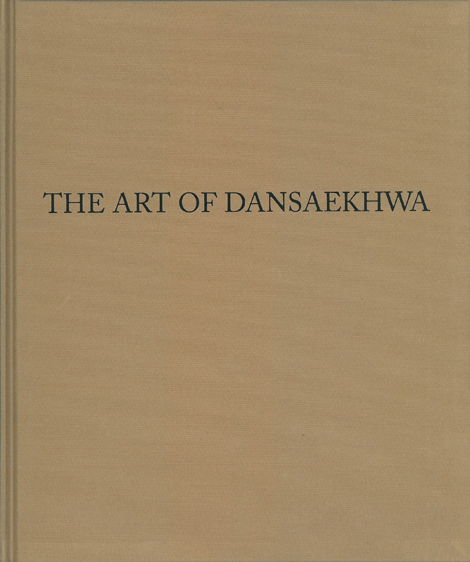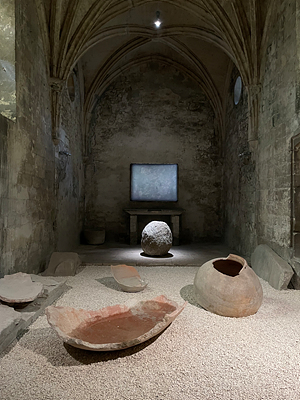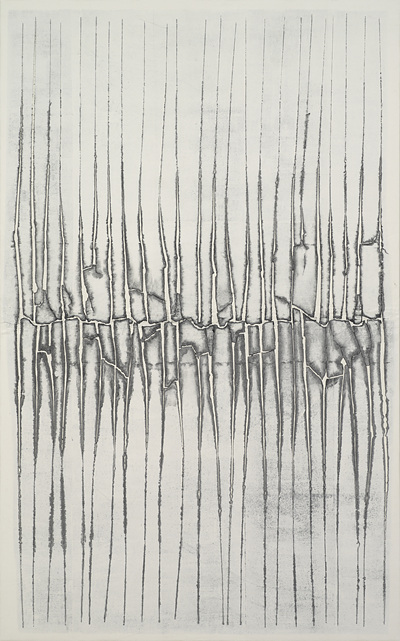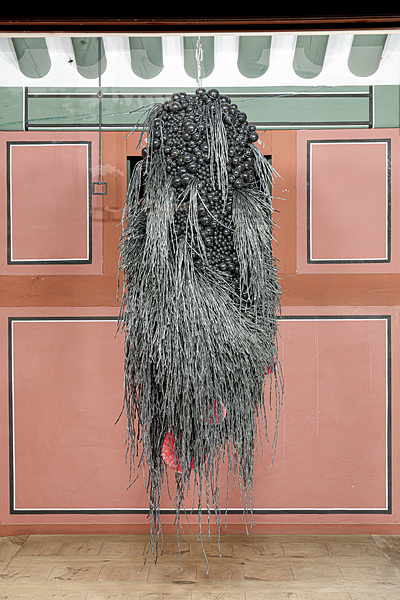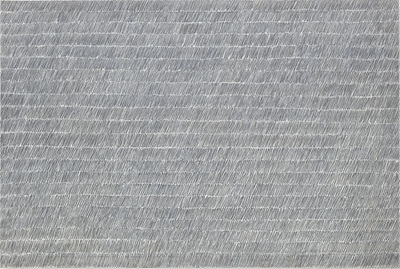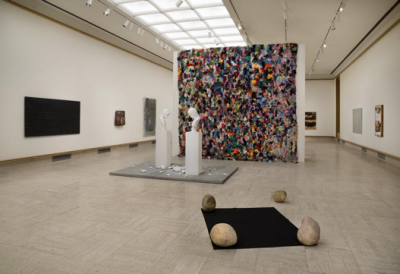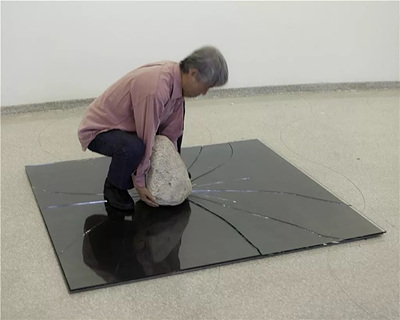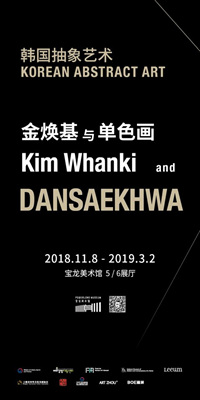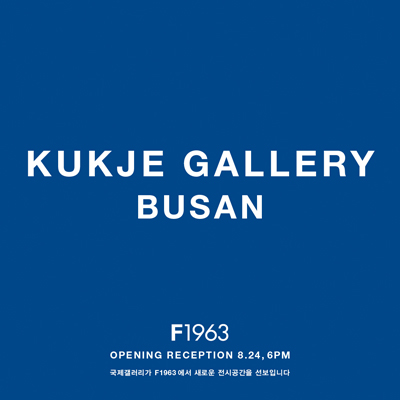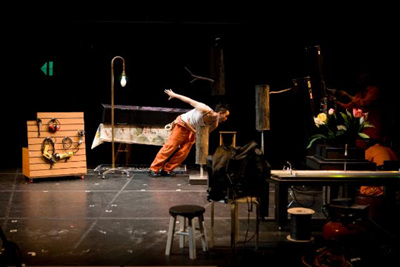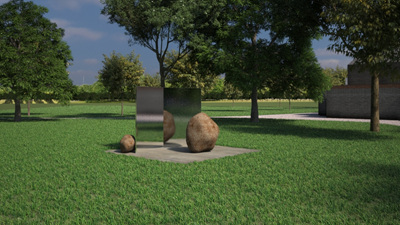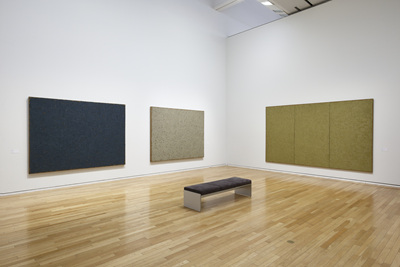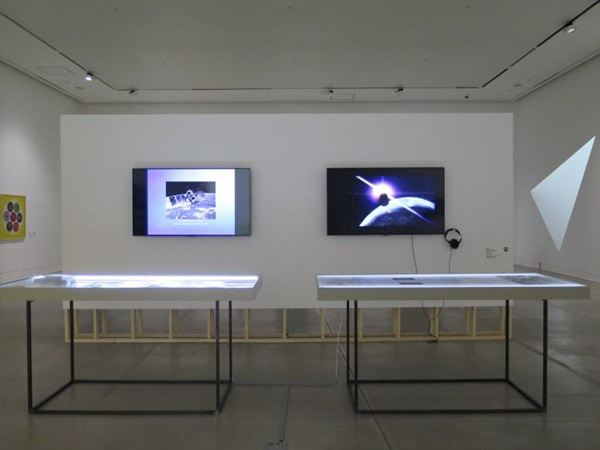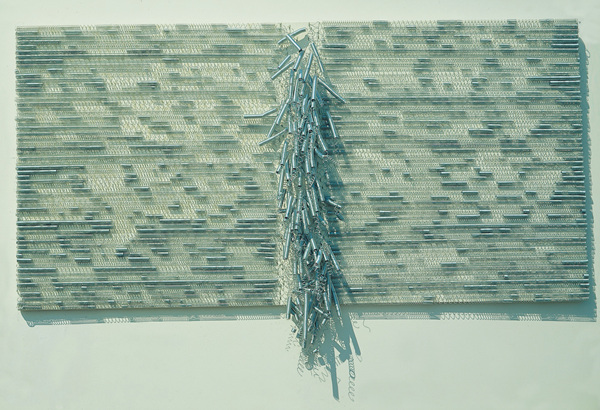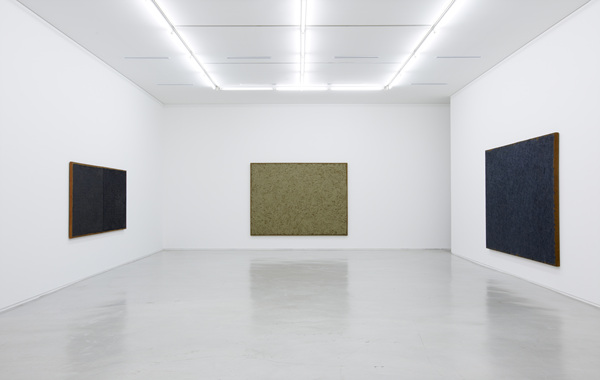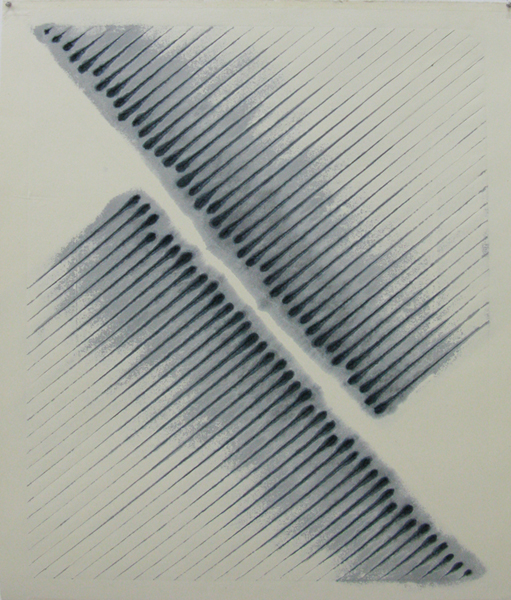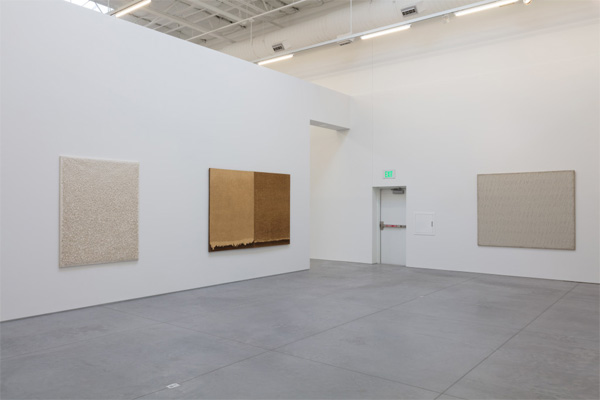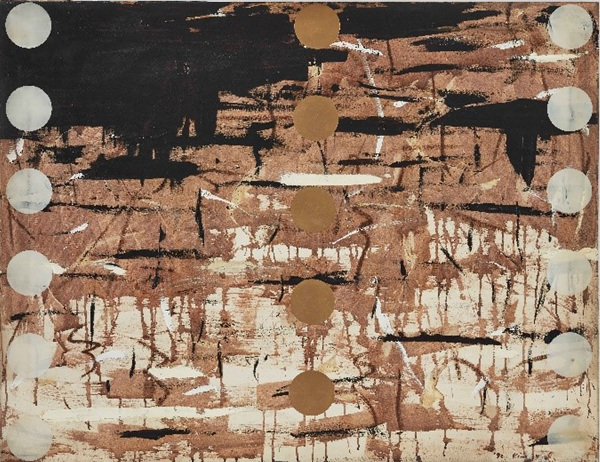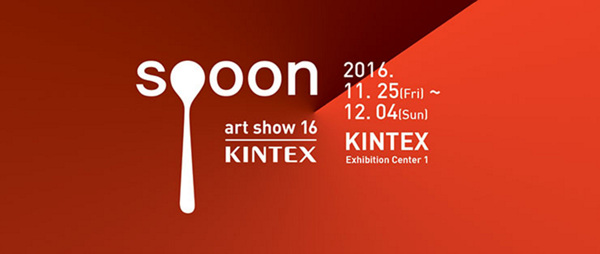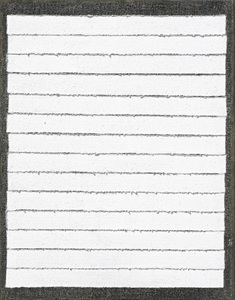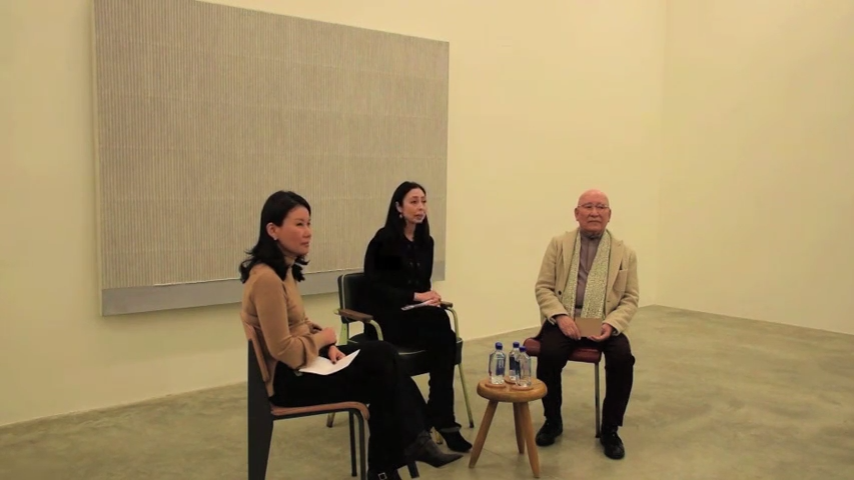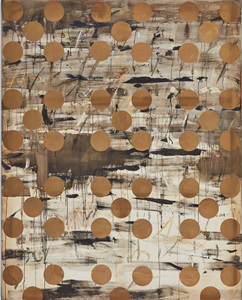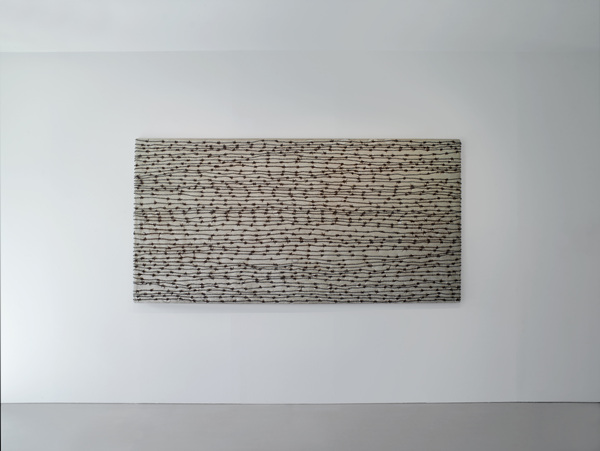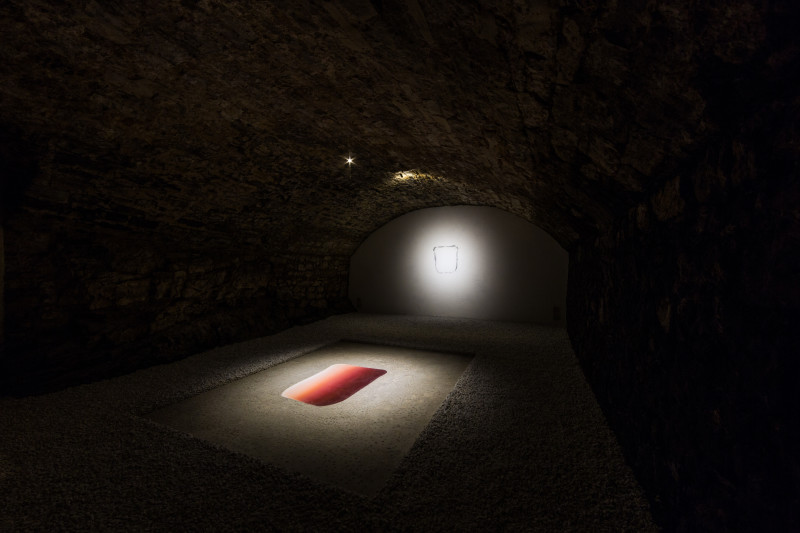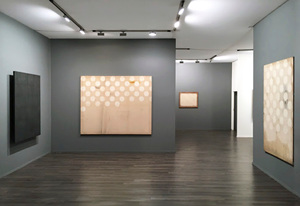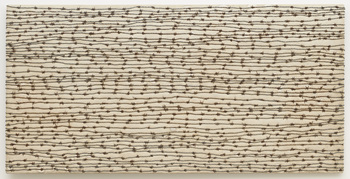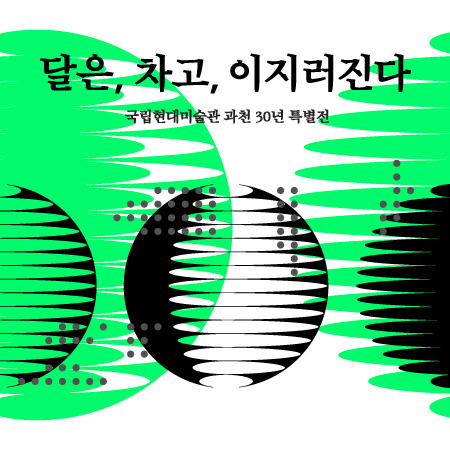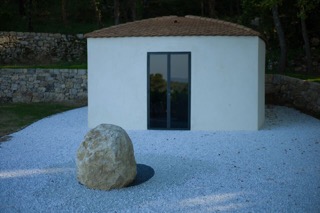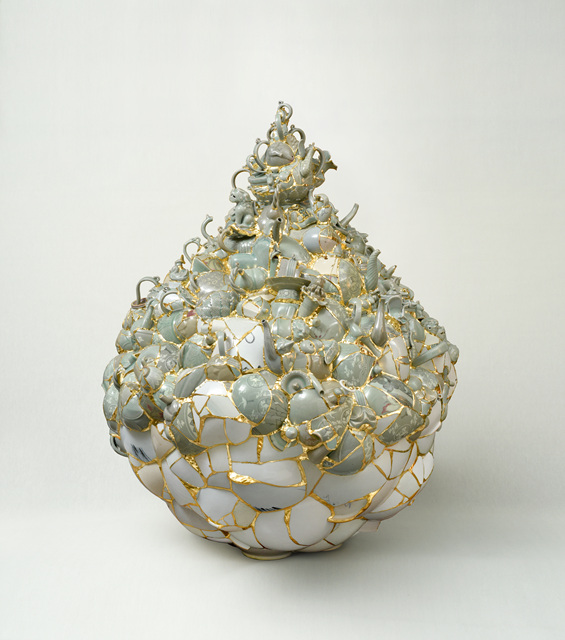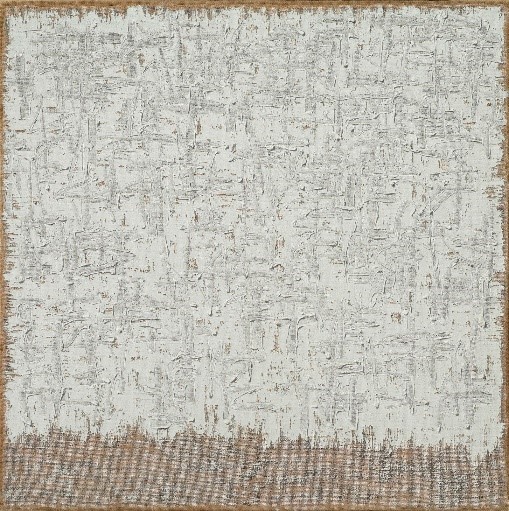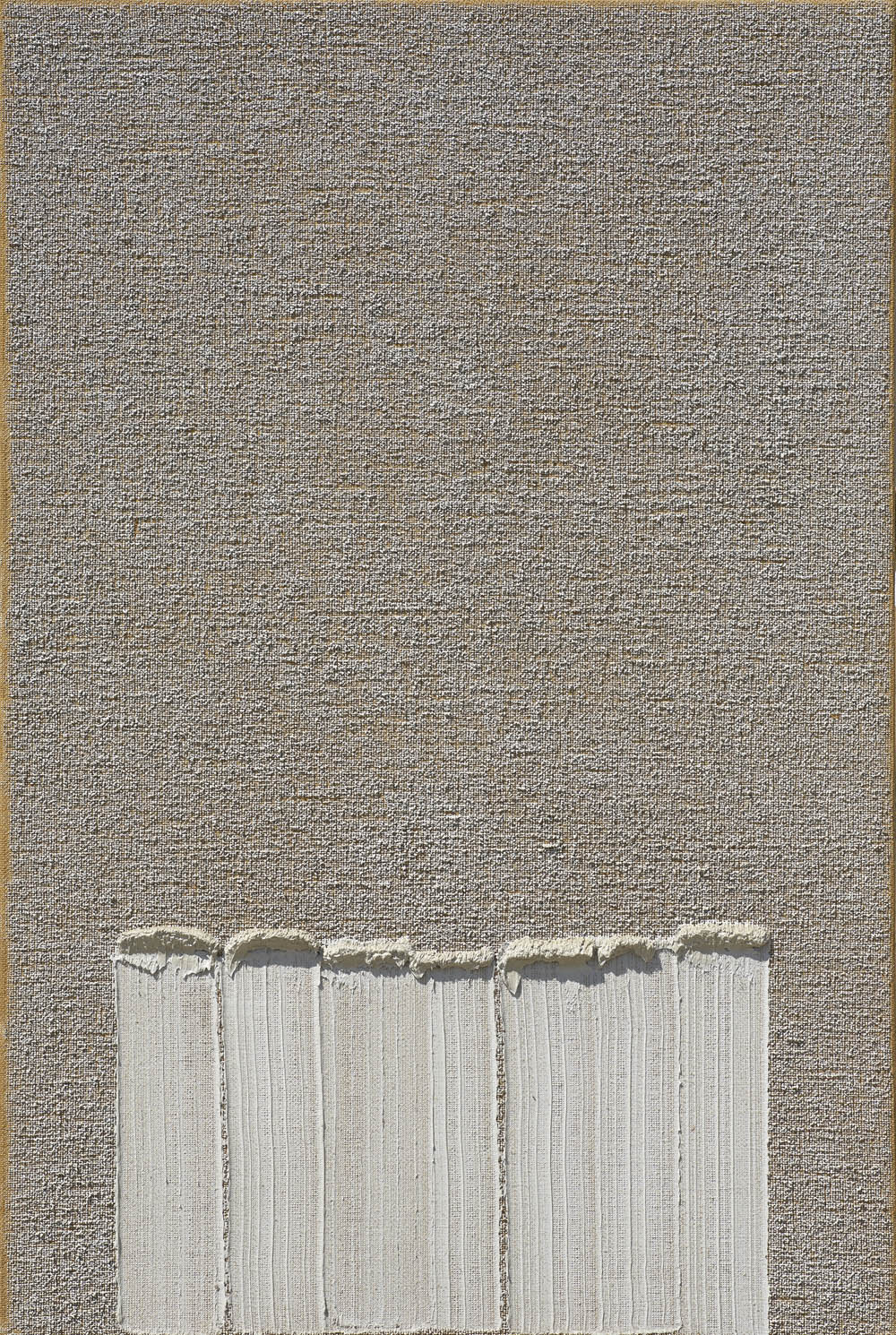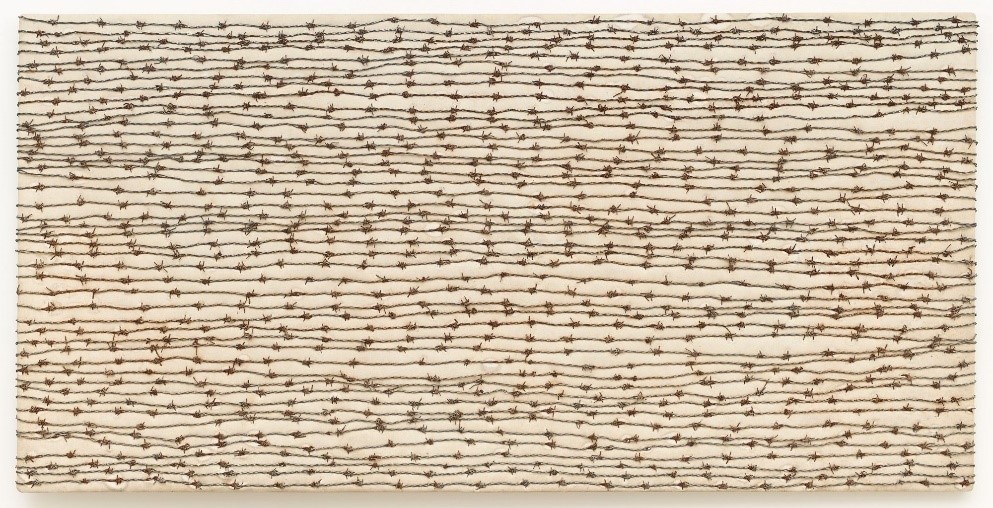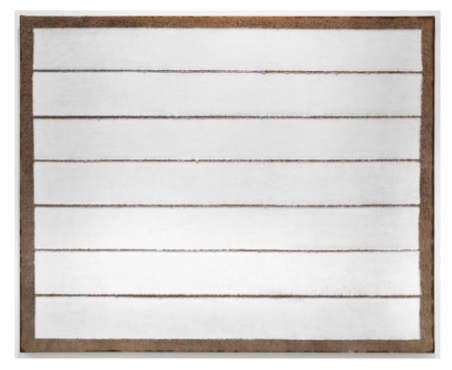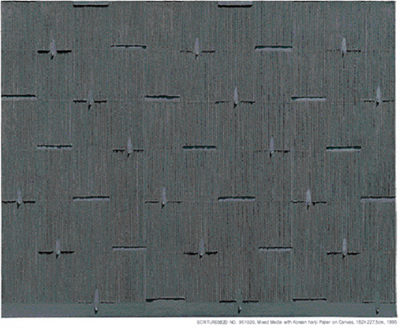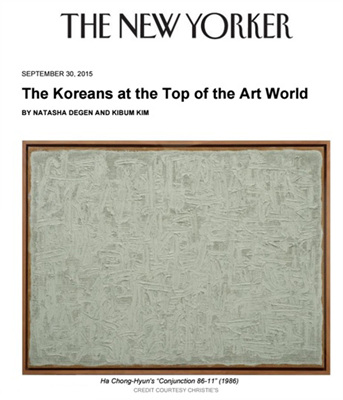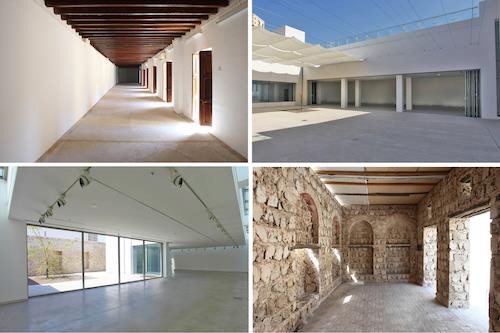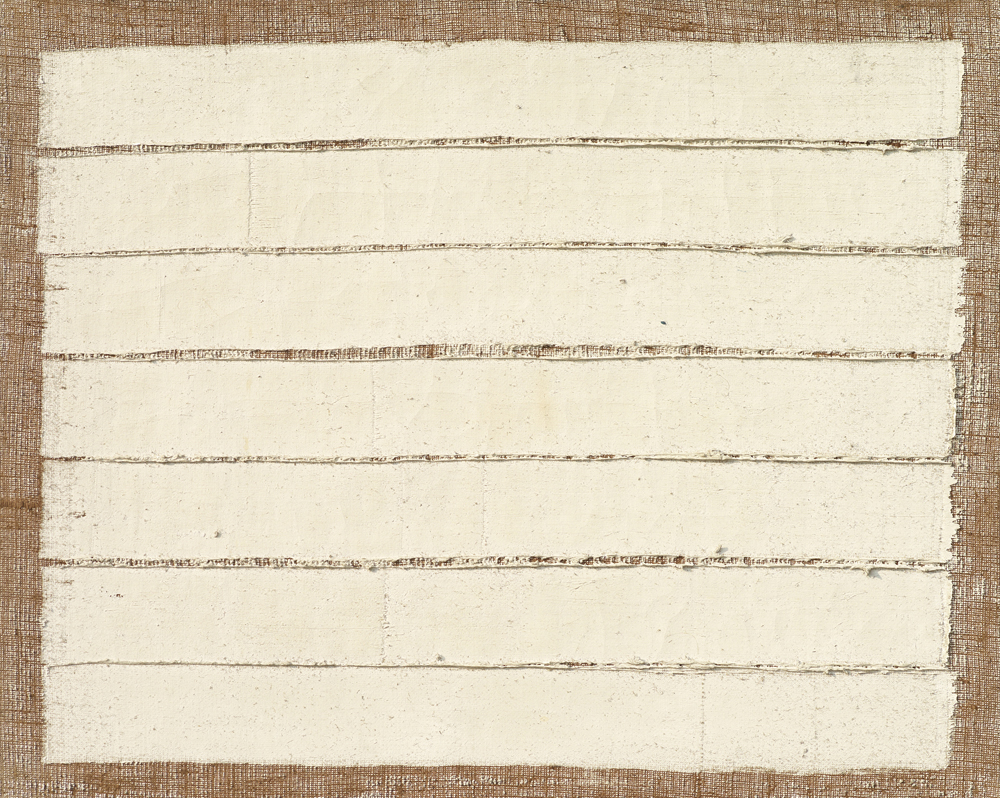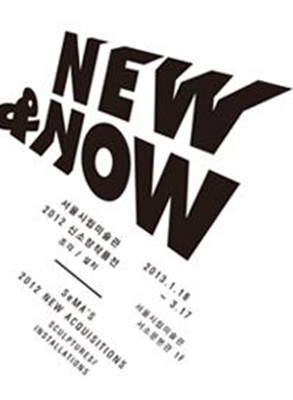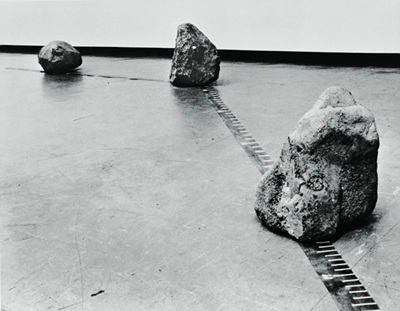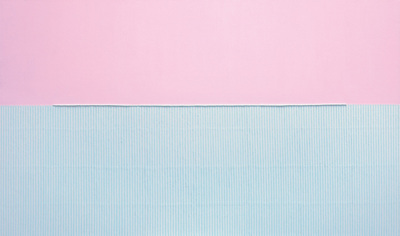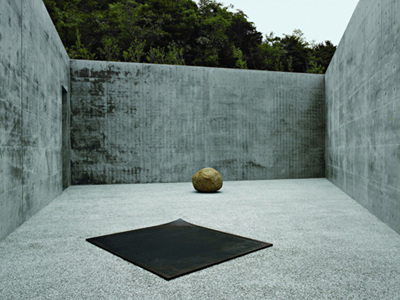 The Art of Dansaekhwa | KUKJE GALLERY
The Art of Dansaekhwa | KUKJE GALLERY
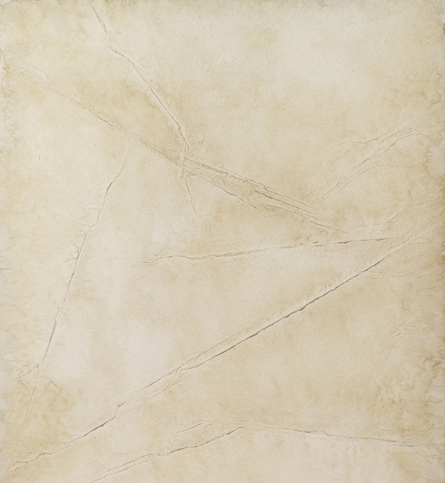
Aug 28, 2014 - Oct 19, 2014
K1 K2 K3
Seoul
INTRODUCTION
Kukje Gallery is pleased to present The Art of Dansaekhwa, an exhibition showcasing masterworks by the seminal artists who founded and promoted its development in Korea. By showcasing these artists together the exhibition aims to re-contextualize the origins of Dansaekwha through the lens of Korean modernism.
Korean Dansaekhwa, also referred to as baeksaekpa (the School of White) emerged in the 1970s as a reaction against the academicism of the National Art Exhibition, which had been the dominant style. This distinction was in contrast to the activities of the 1967 Young Artists Coalition (which eventually led to the collaborative groups A.G. and S.T.) whose work was characterized by installations and happenings. By remaining true to their original focus, the Dansaekwha artists who had led the school of art informel in the late-1950s were, by the 1970s, the primary focus in Korea, becoming synonymous with contemporary art. The Dansaekhwa artists’ radical approach to painting was embodied by fusing the western concept of the surface with a distinctly Korean philosophy and aesthetic. This willingness to both adopt and modify ideas from western modernity allowed for the movement to reach beyond the confines of its own regional influences and encouraged Dansaekwha to widen its horizons and become international.
The exhibition presents the works of Chung Chang-Sup, Chung Sang-Hwa, Ha Chong-Hyun, Kim Guiline, Lee Ufan, Park Seo-Bo, and Yun Hyong-Keun the seven artists who spearheaded the Dansaekhwa movement in the 1970s. By highlighting early works from the 1970s and 80s the exhibition conveys the vibrancy and immediacy of the original Dansaekwa artists. The Art of Dansaekwha especially captures the importance of traditional Korean philosophy, the innovative use of materials, and the performative nature of studio practice, all of which were key components of the movement. The exhibition illustrates these ideas amongst the overlapping and complimentary elements of the artists’ works, capturing their disciplined approach and aesthetic vocabularies. The working process of Dansaekhwa can be considered as a type of “performance” based on the highly specific technical methods used when creating the artworks. In this way the performance of making a painting achieves a level of mindfulness akin to that seen in meditation. Dansaekwha artists pushed the boundaries of artistic practice melding materials with subject and the canvas with the self, both adopting and challenging the new western ideals entering the country. This emphasis on developing specific techniques and using traditional materials in order to synthesize their distinct creative voices and philosophies linked all of the artists, defining the movement.
The Art of Dansaekhwa at Kukje Gallery provides a rare opportunity to reinvestigate the historical evolution of modern art practice in Korea. Having developed at a time of rapid change in Korea’s political and socio-economic landscape, Dansaekwha reflects the social milieu in which these artists lived and worked. The exhibition not only conveys how the Dansaekhwa movement flourished within the then-contemporary art scene, but more importantly it establishes the significance and value of Korean Dansaekhwa within the broader context of global art history.
국제갤러리는 한국미술의 대표적인 성과로 평가 받고 있는 단색화와 이 흐름을 이끌었던 거장들의 작품을 중심으로 한국 모더니즘의 맥락에서 단색화를 재조명하는 <단색화의 예술>전을 개최한다.
한국의 단색화는 국전이라고 하는 아카데믹한 미술에 대한 반동으로 비롯되었다. 1970년대의 단색화 혹은 백색파는 당시만하더라도 현대미술과 이음동의어(異音同義語)로 통하였으며, 1950년대 후반의 앵포르멜 운동의 주역이었던 단색화 작가들은 1967년의 <청년작가연립전>에서 <A.G.> 와 <S.T.>로 이어지는 오브제, 설치, 해프닝, 이벤트 등등의 실험적 내지는 전위적인 운동에서 빗겨나 있다가 70년대 초반에 이르러 다시 현대미술의 주요한 구심점을 형성하였다. 70년대의 단색화가 지닌 회화에 대한 부정의 정신은 현대미술의 맥락에서 볼 때 평면성이란 서구적 개념에 한국의 정신성을 접목시키는 결과를 낳았다. 단색화 작가들의 이 같은 서구 모더니티의 수용과 절충은 국제적 보편주의를 향한 행진의 서곡이었으며 이른바 회화에 있어서 현대성의 획득이 이루어지면서 지역적인 한계로부터 벗어나 국제적인 열린 지평으로 나아가게 되었던 것이다.
이번 전시에서는 1970년대 단색화 운동에서 핵심적인 역할을 한 김기린, 박서보, 윤형근, 이우환, 정상화, 정창섭, 하종현 등 일곱 작가의 작품을 선보임으로써 1970-80년대에 제작된 초기 단색화를 중심으로 한국 단색화 운동의 생생한 면모를 보여주고자 한다. 특히 한국 단색화의 요체로 손꼽히는 정신성, 촉각성, 행위성이 일곱 작가의 작품 속에 고르게 스며 있고, 이들이 하나의 장 안에서 서로 겹치거나 스며드는 가운데 궁극의 지점을 향해 나아가는 것을 보여주고자 한다. 가령, 촉각성은 행위의 ‘반복’을 통해 마치 선(禪) 수행하듯 종국에는 고도의 정신성을 획득한다. 과정으로서의 단색화의 제작 방식은 물성과 주체, 화폭과 자아의 합일을 이루는 일종의 ‘수행(performance)’이라고 할 수 있다. 이우환의 반복되는 선과 점의 행렬, 박서보의 선묘, 정상화의 물감의 뜯어내기와 메우기, 윤형근의 넓은 색역(色域)의 중첩, 정창섭의 한지의 겹칩, 하종현의 배압(背壓)의 행위, 김기린의 물감의 분무(噴霧) 행위 등 반복적 행위는 이들의 작품 속에 고르게 녹아 있다.
이번 국제갤러리 전시 <단색화의 예술>은 서구식으로 재편되고 있었던 당대 사회상과 급변하는 정치적 상황 속에서도 순수한 예술적 혁신을 위한 전위정신를 가지고자 했던 단색화 운동의 모습을 재조명한다. 더 나아가 당대 해외 미술의 현장 속에 적극적으로 모습을 드러내었던 단색화 운동을 통해 해외 미술사적 맥락 속에서 그 가치를 가늠해 볼 수 있을 것이다.
Korean Dansaekhwa, also referred to as baeksaekpa (the School of White) emerged in the 1970s as a reaction against the academicism of the National Art Exhibition, which had been the dominant style. This distinction was in contrast to the activities of the 1967 Young Artists Coalition (which eventually led to the collaborative groups A.G. and S.T.) whose work was characterized by installations and happenings. By remaining true to their original focus, the Dansaekwha artists who had led the school of art informel in the late-1950s were, by the 1970s, the primary focus in Korea, becoming synonymous with contemporary art. The Dansaekhwa artists’ radical approach to painting was embodied by fusing the western concept of the surface with a distinctly Korean philosophy and aesthetic. This willingness to both adopt and modify ideas from western modernity allowed for the movement to reach beyond the confines of its own regional influences and encouraged Dansaekwha to widen its horizons and become international.
The exhibition presents the works of Chung Chang-Sup, Chung Sang-Hwa, Ha Chong-Hyun, Kim Guiline, Lee Ufan, Park Seo-Bo, and Yun Hyong-Keun the seven artists who spearheaded the Dansaekhwa movement in the 1970s. By highlighting early works from the 1970s and 80s the exhibition conveys the vibrancy and immediacy of the original Dansaekwa artists. The Art of Dansaekwha especially captures the importance of traditional Korean philosophy, the innovative use of materials, and the performative nature of studio practice, all of which were key components of the movement. The exhibition illustrates these ideas amongst the overlapping and complimentary elements of the artists’ works, capturing their disciplined approach and aesthetic vocabularies. The working process of Dansaekhwa can be considered as a type of “performance” based on the highly specific technical methods used when creating the artworks. In this way the performance of making a painting achieves a level of mindfulness akin to that seen in meditation. Dansaekwha artists pushed the boundaries of artistic practice melding materials with subject and the canvas with the self, both adopting and challenging the new western ideals entering the country. This emphasis on developing specific techniques and using traditional materials in order to synthesize their distinct creative voices and philosophies linked all of the artists, defining the movement.
The Art of Dansaekhwa at Kukje Gallery provides a rare opportunity to reinvestigate the historical evolution of modern art practice in Korea. Having developed at a time of rapid change in Korea’s political and socio-economic landscape, Dansaekwha reflects the social milieu in which these artists lived and worked. The exhibition not only conveys how the Dansaekhwa movement flourished within the then-contemporary art scene, but more importantly it establishes the significance and value of Korean Dansaekhwa within the broader context of global art history.
국제갤러리는 한국미술의 대표적인 성과로 평가 받고 있는 단색화와 이 흐름을 이끌었던 거장들의 작품을 중심으로 한국 모더니즘의 맥락에서 단색화를 재조명하는 <단색화의 예술>전을 개최한다.
한국의 단색화는 국전이라고 하는 아카데믹한 미술에 대한 반동으로 비롯되었다. 1970년대의 단색화 혹은 백색파는 당시만하더라도 현대미술과 이음동의어(異音同義語)로 통하였으며, 1950년대 후반의 앵포르멜 운동의 주역이었던 단색화 작가들은 1967년의 <청년작가연립전>에서 <A.G.> 와 <S.T.>로 이어지는 오브제, 설치, 해프닝, 이벤트 등등의 실험적 내지는 전위적인 운동에서 빗겨나 있다가 70년대 초반에 이르러 다시 현대미술의 주요한 구심점을 형성하였다. 70년대의 단색화가 지닌 회화에 대한 부정의 정신은 현대미술의 맥락에서 볼 때 평면성이란 서구적 개념에 한국의 정신성을 접목시키는 결과를 낳았다. 단색화 작가들의 이 같은 서구 모더니티의 수용과 절충은 국제적 보편주의를 향한 행진의 서곡이었으며 이른바 회화에 있어서 현대성의 획득이 이루어지면서 지역적인 한계로부터 벗어나 국제적인 열린 지평으로 나아가게 되었던 것이다.
이번 전시에서는 1970년대 단색화 운동에서 핵심적인 역할을 한 김기린, 박서보, 윤형근, 이우환, 정상화, 정창섭, 하종현 등 일곱 작가의 작품을 선보임으로써 1970-80년대에 제작된 초기 단색화를 중심으로 한국 단색화 운동의 생생한 면모를 보여주고자 한다. 특히 한국 단색화의 요체로 손꼽히는 정신성, 촉각성, 행위성이 일곱 작가의 작품 속에 고르게 스며 있고, 이들이 하나의 장 안에서 서로 겹치거나 스며드는 가운데 궁극의 지점을 향해 나아가는 것을 보여주고자 한다. 가령, 촉각성은 행위의 ‘반복’을 통해 마치 선(禪) 수행하듯 종국에는 고도의 정신성을 획득한다. 과정으로서의 단색화의 제작 방식은 물성과 주체, 화폭과 자아의 합일을 이루는 일종의 ‘수행(performance)’이라고 할 수 있다. 이우환의 반복되는 선과 점의 행렬, 박서보의 선묘, 정상화의 물감의 뜯어내기와 메우기, 윤형근의 넓은 색역(色域)의 중첩, 정창섭의 한지의 겹칩, 하종현의 배압(背壓)의 행위, 김기린의 물감의 분무(噴霧) 행위 등 반복적 행위는 이들의 작품 속에 고르게 녹아 있다.
이번 국제갤러리 전시 <단색화의 예술>은 서구식으로 재편되고 있었던 당대 사회상과 급변하는 정치적 상황 속에서도 순수한 예술적 혁신을 위한 전위정신를 가지고자 했던 단색화 운동의 모습을 재조명한다. 더 나아가 당대 해외 미술의 현장 속에 적극적으로 모습을 드러내었던 단색화 운동을 통해 해외 미술사적 맥락 속에서 그 가치를 가늠해 볼 수 있을 것이다.
WORKS
|
Kim Guiline |
Yun Hyong-Keun(1928-2007) |
|
|
Park Seo-Bo (1931-) |
Ha Chong-Hyun(1935-) |
|
|
Lee Ufan(1936) |
Chung Sang-Hwa(1932-) |
|
|
Chung Chang-Sup(1927-2011) |
Ha Chong-Hyun(1935-) |
|
INSTALLATIONS
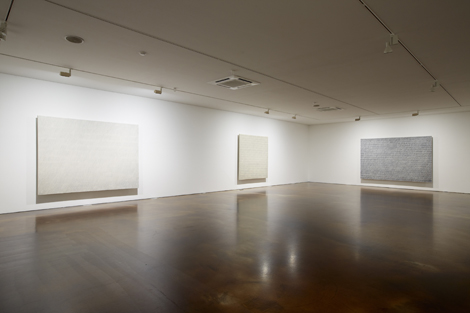
|
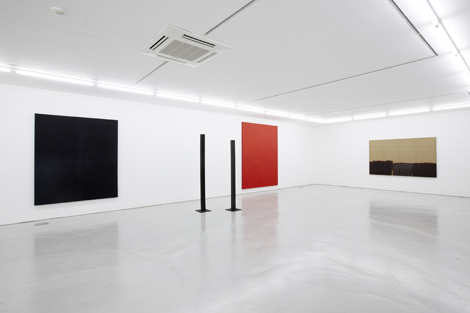
|
|
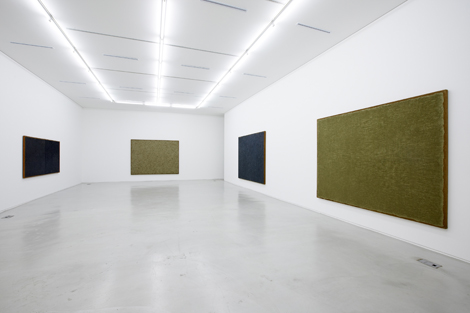
|
PUBLICATIONS
| THE ART OF DANSAEKHWA |
MEDIA COVERAGE
일간지
종말 맞은 가상의 미래서 예술의 역할을 묻다
Apr 15, 2015 세계일보
‘아트바젤 홍콩’ 동서양 아우르는 지상 최대 아트페어로 뜬다
Mar 25, 2015 세계일보
올해도 대세는 단색화
Feb 3, 2015 경향신문
미술시장 침체, 단색화로 극복
Jan 29, 2015 제민일보
학고재의 大知無碍
Jan 5, 2015 한국경제
[2014 미술계 결산] ‘교감’으로 힐링하고 ‘미디어’로 세상읽다
Dec 30, 2014 조선일보
한국 미술 ‘과거 재해석’
Dec 24, 2014 세계일보
'한국의 단색화' … 美·英 이어 中도 물들인다
Nov 26, 2014 문화일보
The Art of Dansaekhwa
Sep 19, 2014 코리아타임즈
70년대 물들인 단색조...굴절의 현대미술 되새김질
Sep 18, 2014 한겨레
'Dansaekhwa' under global spotlight
Sep 18, 2014 코리아해럴드
세계가 주목하는 한국의 미술사조, 단·색·화
Sep 16, 2014 동아일보
경계를 알 수 없는 修身의 결정체
Sep 12, 2014 파이낸셜뉴스
김기린.정상화.하종현.이우환.박서보.정창섭.윤형근 '단색화의 예술'
Sep 3, 2014 뉴시스
“반복·비움·저항의 결과물…그게 단색화”
Sep 3, 2014 서울신문
Kukje brings monochrome paintings to light
Sep 3, 2014 코리아중앙데일리
“캔버스 위에 피어난 아시아적 가치”
Sep 2, 2014 매일경제
“단색화는 침묵 아닌 저항수단”
Sep 2, 2014 한국경제
한국 현대미술의 핵심 ‘단색화’의 유혹
Sep 2, 2014 경향신문
한국의 독특한 추상회화 양식 ‘모노크롬’ 진면목 보여준다
Sep 2, 2014 국민일보
이우환 "단색화는 현실 외면 아니라 저항 자세"
Sep 2, 2014 연합뉴스
한국 단색화 들여다보기
Aug 27, 2014 세계일보
대형 기획전 넘치는 화랑가
Aug 26, 2014 서울신문
화랑가 기획전 빅매치
Aug 25, 2014 서울경제
월간지
Half-truths about 'Dansaekhwa'
Oct, 2015 Art price
'레트로', 시간의 유혹술
May, 2015 Noblesse
물감으로 그린 詩, 단색화의 힘
May, 2015 Luxury
Sharjah Biennial 12
May, 2015 ArtAsiaPacific
미술본색 in 홍콩
Apr, 2015 월간미술
'블루칩' 단색화 홍콩에서 세계로
Apr, 2015 Art In Culture
"From All Sides: Tansaekhwa on Abstraction"
Mar, 2015 ARTFORUM
匯集超過50件精品 白髮一雄 田中敦子 李禹換 朴栖甫
Mar, 2015 Chinese Contemporary Art News
단색화의 정상 등극
Feb, 2015 HEREN
뿌리 깊은 단색화 미술시장을 위한 전략
Feb, 2015 서울아트가이드
단색화 열풍의 무한질주
Feb, 2015 월간미술
Skin & Surface
Feb, 2015 frieze
"From All Sides"
Jan, 2015 artasiapacific
KOREA, SOUTH
Jan, 2015 artasiapacific
제2의 르네상스를 향하여
Dec, 2014 artnow
단색화 촉각적 '보기'
Dec, 2014 Art In Culture
"TANSAEKHWA ON ABSTRACTION"
Dec, 2014 ARTNEWS
한국 모더니즘의 단색화를 재조명하다 <단색화의 예술>
Oct, 2014 PWM
단색화의 귀환, '이제 회화의 시대다'
Oct, 2014 Art in Culture
EXHIBITION THEME: The Art of Dansaekhwa
Oct, 2014 월간미술
The Art of 'DANSAEKHWA'
Oct, 2014 월간미술
'나는 큐레이터입니다' 中
Oct, 2014 MUINE
단색화의 예술
Oct, 2014 미술신문
DANSAEKHWA
Sep, 2014 PUBLIC ART
단색화의 발견
Sep, 2014 PUBLIC ART
단색화의 귀환
Sep, 2014 HEREN
[PREView] 단색화의 예술
Sep, 2014 ArtWIDE
"The Art of Dansaekhwa" at Kukje Gallery
Aug 26, 2014 Blouin Artinfo
21세기 미술 걸작선 하종현, 정상화
Aug, 2014 PUBLIC ART
Beyond White
Jul 23, 2014 ArtAsiaPacific
단색화의 예술
Oct, 0204 Art in Culture
주간지/웹
Art Basel Hong Kong 2015: New York gallery preview images
Mar 20, 2015 randian
Skin & Surface
Feb 25, 2015 frieze
騷亂中的沉默之聲韓國單色繪畫探究 Silent Voice Amidst ChaosOn Korea’s Dansaekhwa
Jan 12, 2015 ARTCO
올드보이의 귀환 응답하라! 7080 미술계 원로들이여
Nov 25, 2014 Citylife
Touching the substrate
Oct 28, 2014 TK-21
Kukje Gallery and Tina Kim Gallery at Frieze London and Frieze Masters
Oct 16, 2014 art agenda
한때는 저항의 상징 지금 모노크롬 열풍
Sep 21, 2014 CNB저널
‘Dansaekhwa’ under global spotlight
Sep 17, 2014 코리아해럴드
가을, 삼청동을 거닐 시간
Sep 12, 2014 헤럴드경제
Escalade artistique en Corée du Sud
Sep 12, 2014 Le Monde
방송
세계가 주목한 '한국 단색화' 들여다보기
Sep 16, 2014 KTV
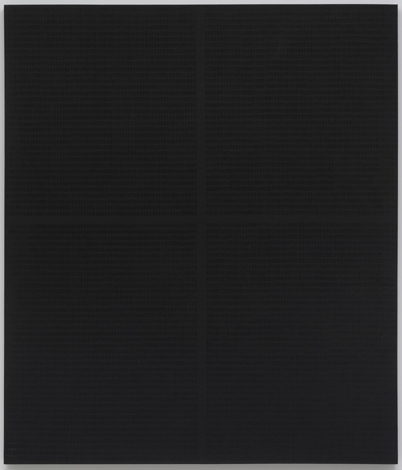
_w_55a.jpg)
_w_4b9.jpg)
_w_d93.jpg)
_w_746.jpg)
_w_83e.jpg)
_w_7e4.jpg)
_w_3e2.jpg)
